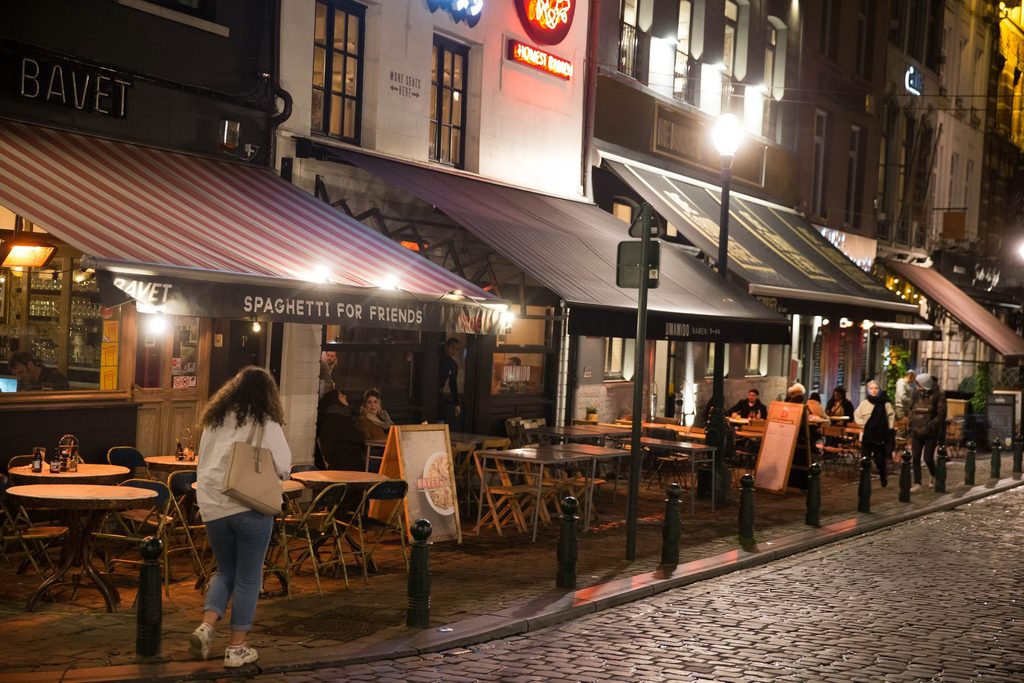Brussels' hospitality sector has issued a desperate plea to the Federal Government for further support as soaring costs push many cafés and restaurants in Belgium's capital city to the brink of financial ruin.
According to Brussels Horeca Federation (FHB) President Ludivine de Magnanville, the financial situation of many hospitality businesses has become so precarious that some are now resorting to illegal practices to limit expenses.
"A few days ago, I had a boss crying as members of his staff had been hired by a competitor because it allowed them to be paid 'under the table' and therefore pay less tax," she told Le Soir.
Although de Magnanville emphasised that the current crisis is likely caused by a range of factors – including government-mandated wage indexations and different school holiday periods for Belgium's French and Dutch speakers – she suggested that high energy prices were the principal reason for the widespread distress.
"At the beginning of the year, the energy suppliers asked for higher down payments. When we go from €300 to €800, or even €1,000, we kill ourselves in cash every month a little more."
'An explosive cocktail'
Former restaurant owner Fred Bertels was recently forced to close his eatery Le Fruit Défendu in Ixelles. Bertels told Le Soir that an increase in no-shows (i.e. customers who book a table but never turn up) and high food inflation was partly to blame for his business' failure, in addition to wage indexations.
"[No-shows] worked against us, as did the indexation of staff [wages] and the increase in the price of goods," he said. "When you put all this in a jar, it makes a hell of an explosive cocktail that at some point it's just not possible to get away with it anymore."
However, Bertels also suggested that soaring energy costs were the principal factor behind his restaurant's collapse, as it led to fewer people eating out – and to people watching what they ate when they did.
Related News
- Bankruptcies in Belgium soar to highest levels since 2018
- High energy prices pose 'real risk' to Belgium's industry, study finds
"The returns from (the first) lockdown were fantastic but once the euphoria passed, after the second lockdown, we had a catastrophic winter with a clear drop in attendance and a decline in revenue," he explained. "People were coming but were taking it easy. They had an apéritif at home, no dessert and no starter. They went out while keeping in mind that energy bills had tripled and that they had to be careful."
Bertels noted that his restaurant might have been able to remain open had it received sufficient government support much sooner. "For the energy crisis, aid should have been available immediately, and not six months or a year later," he said. "I may be able to claim [the aid] now, but my [restaurant] is closed... It's too late."

